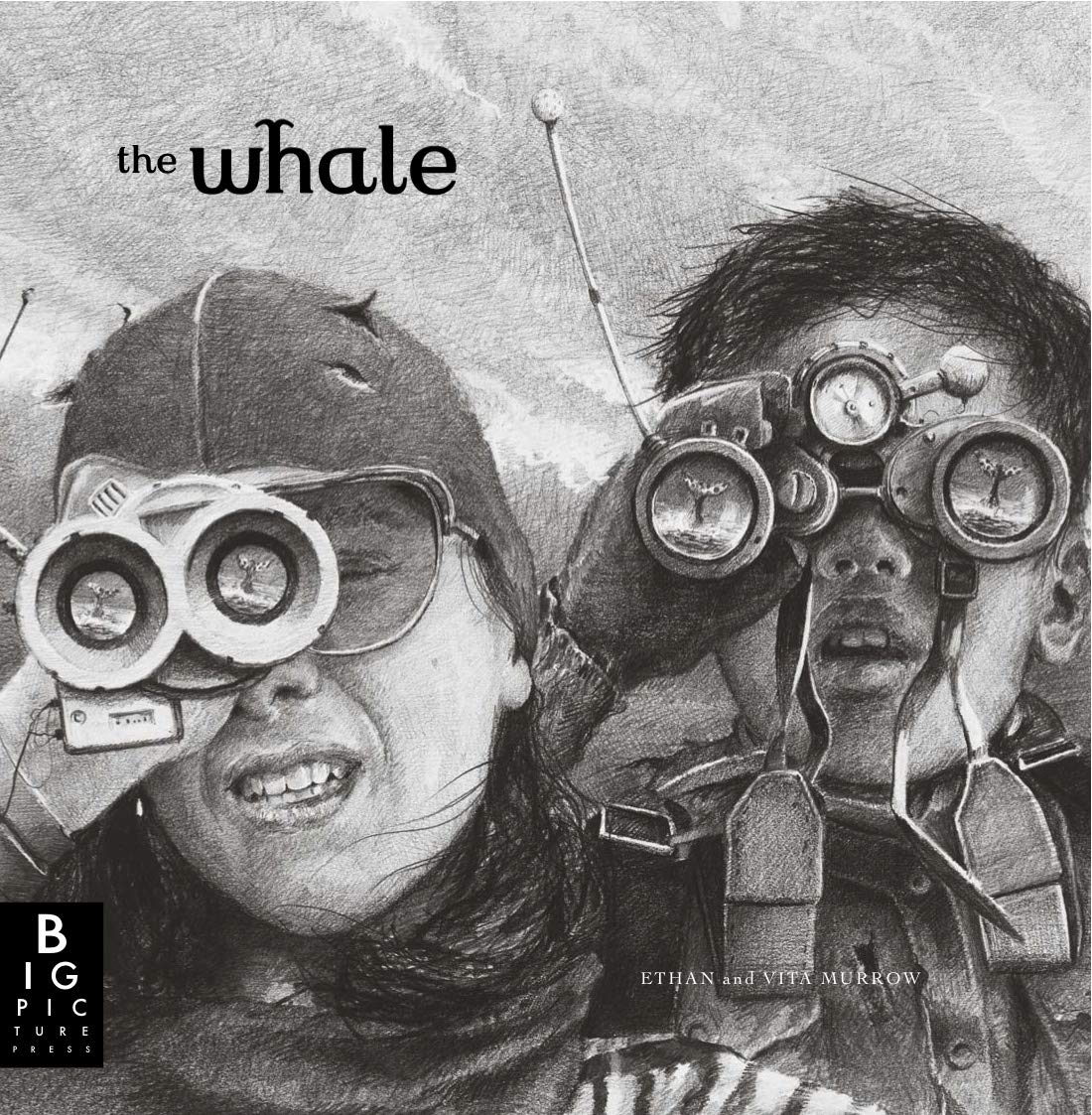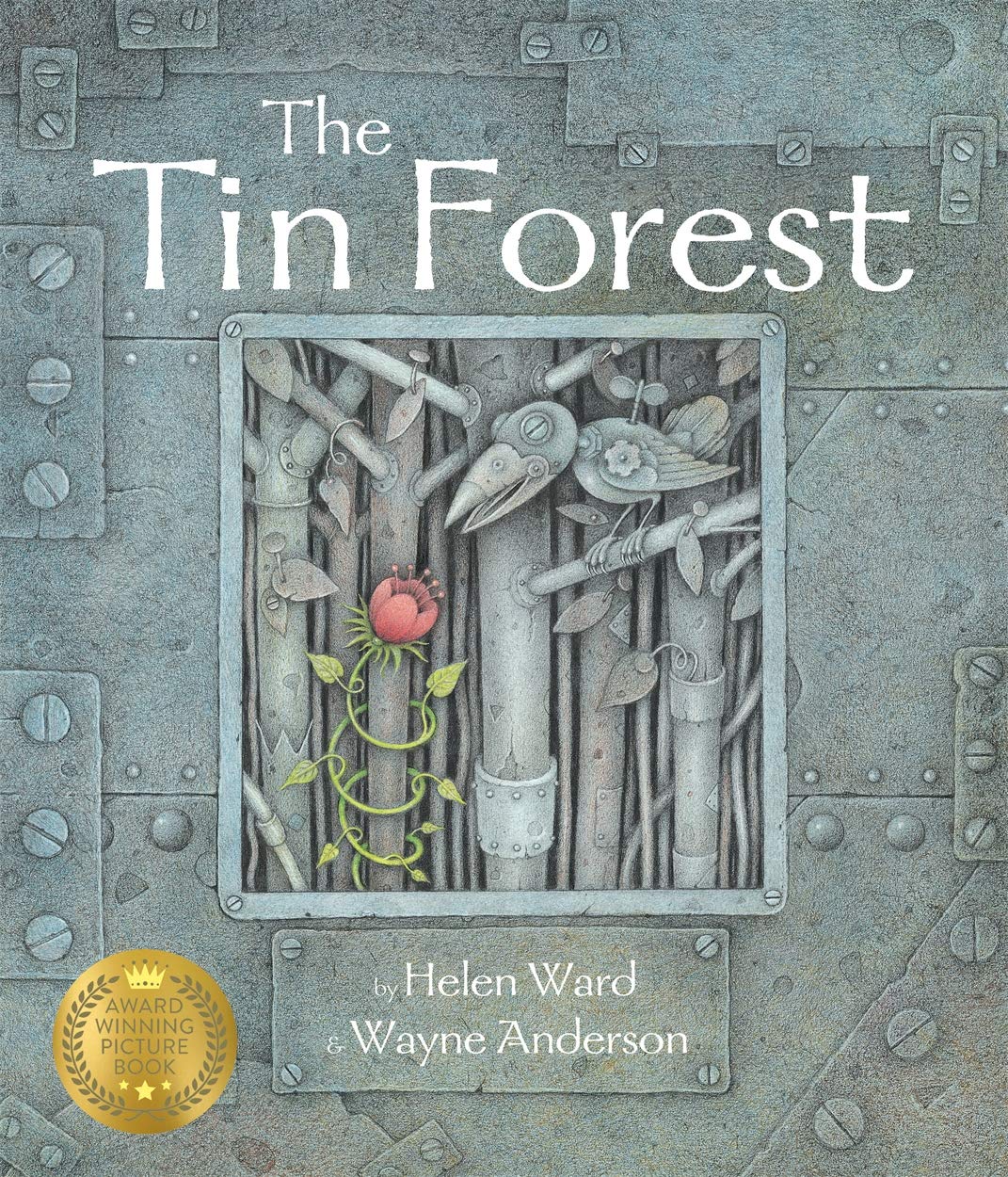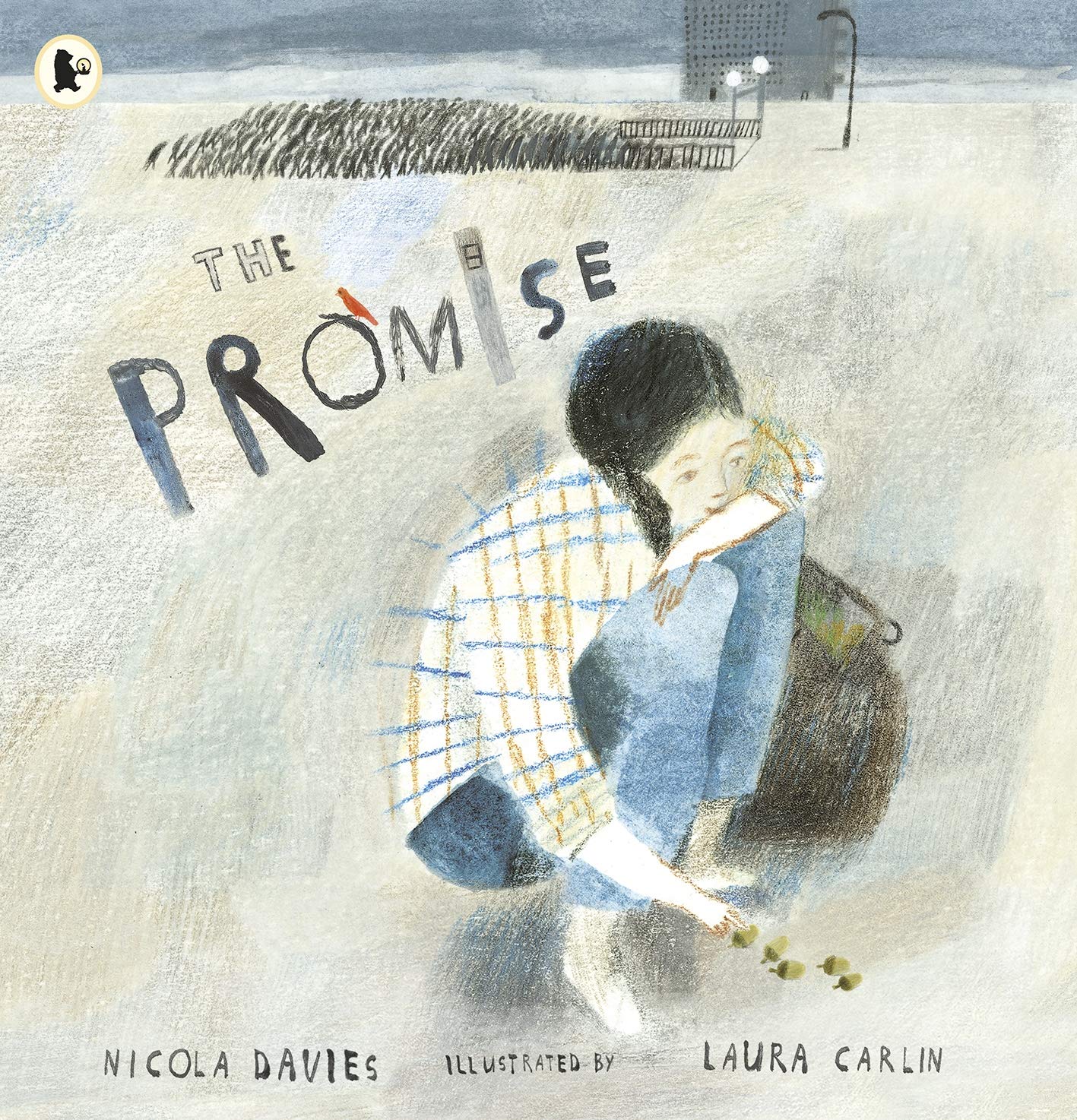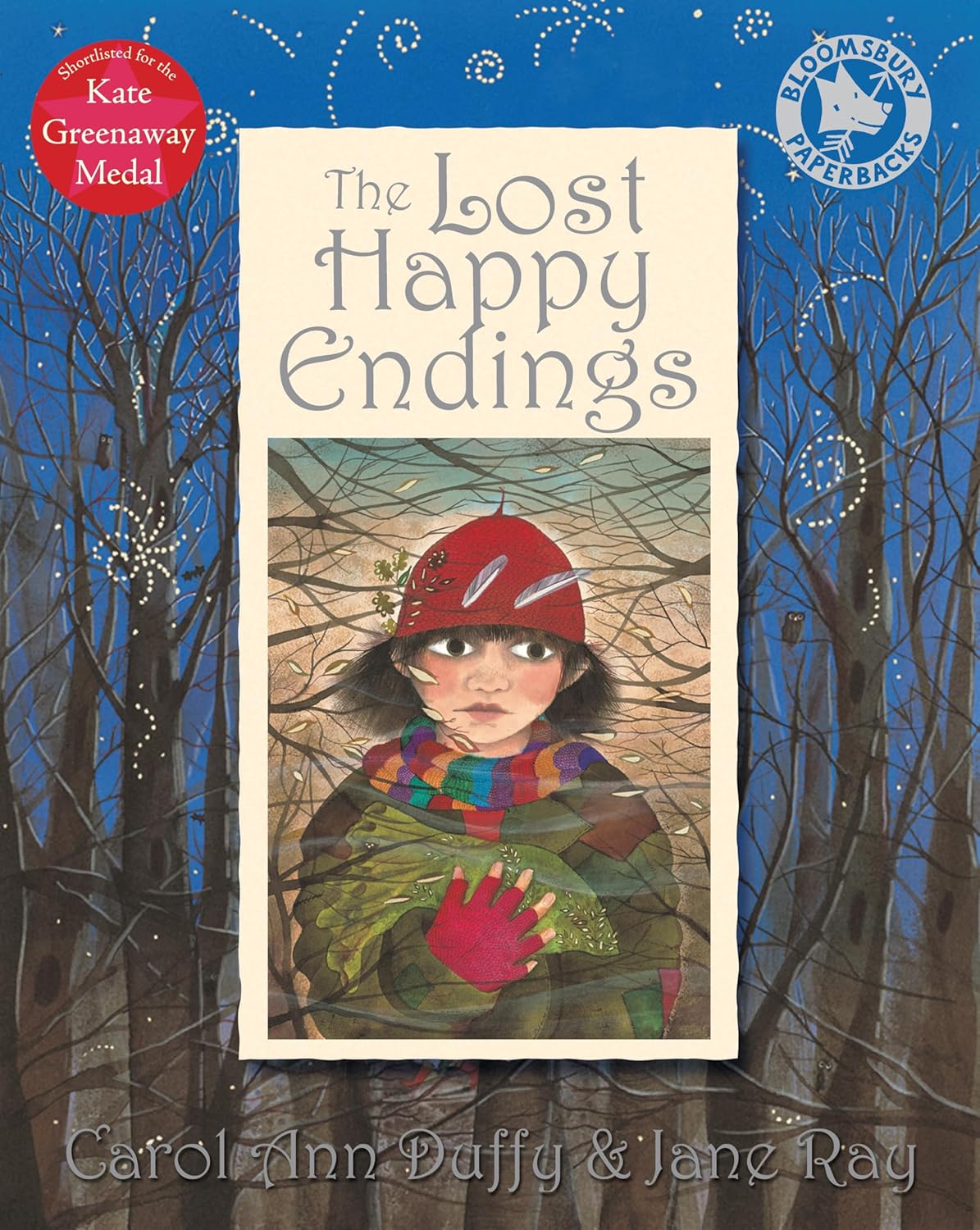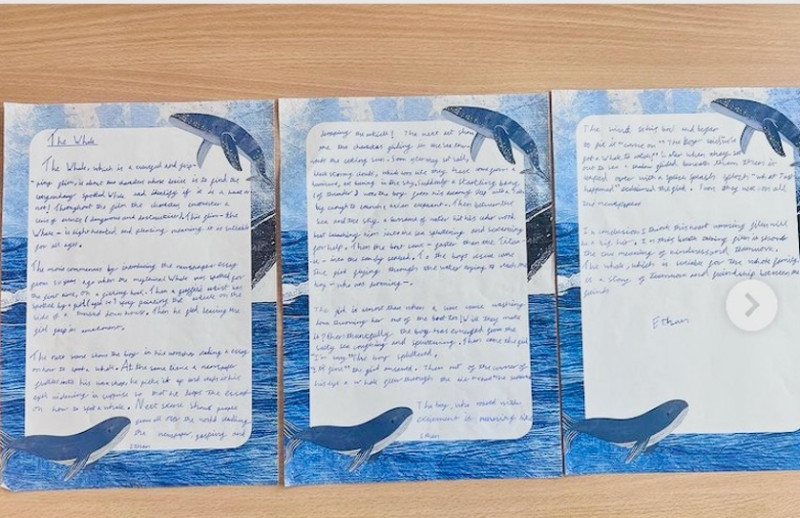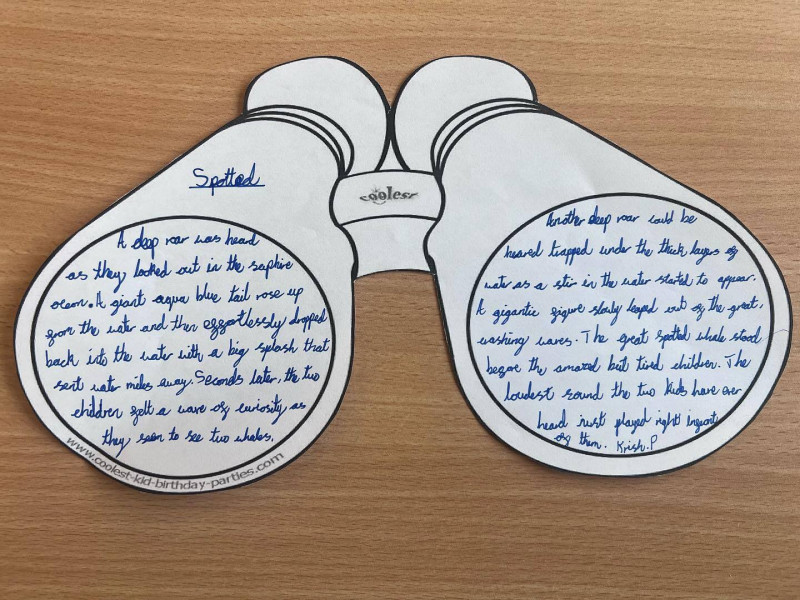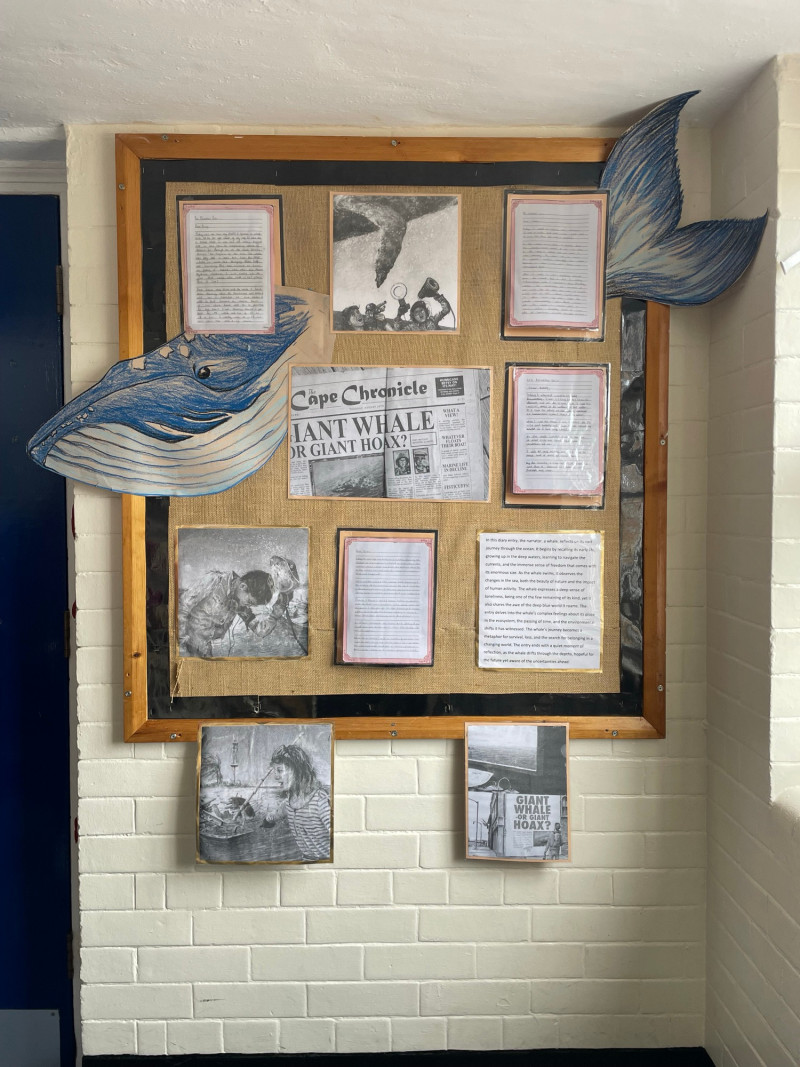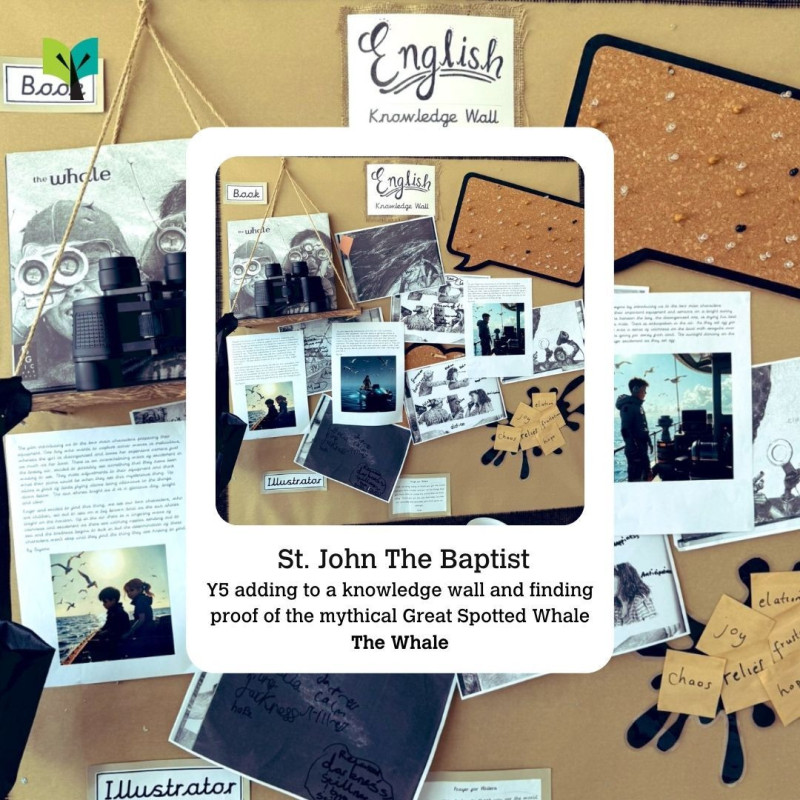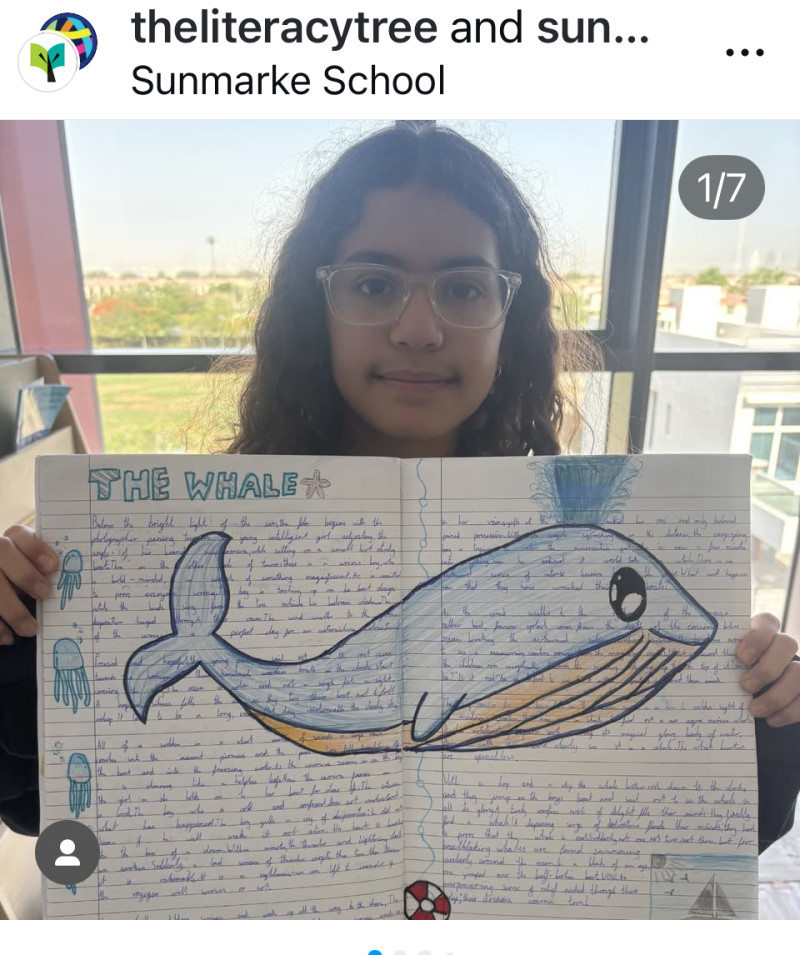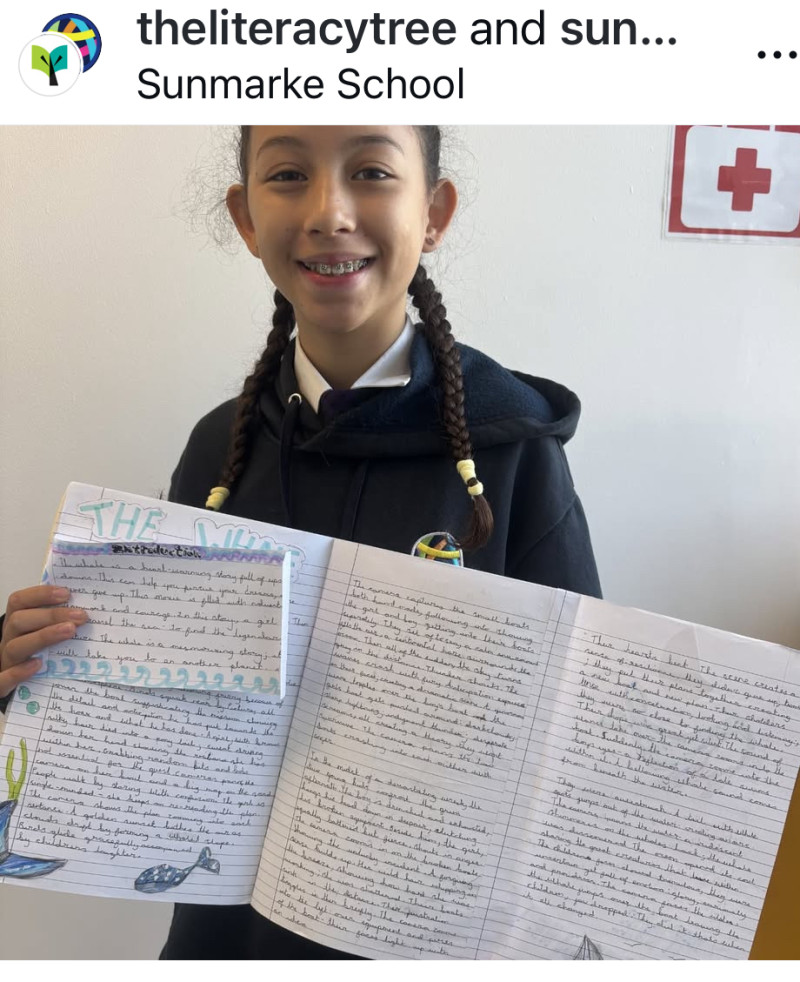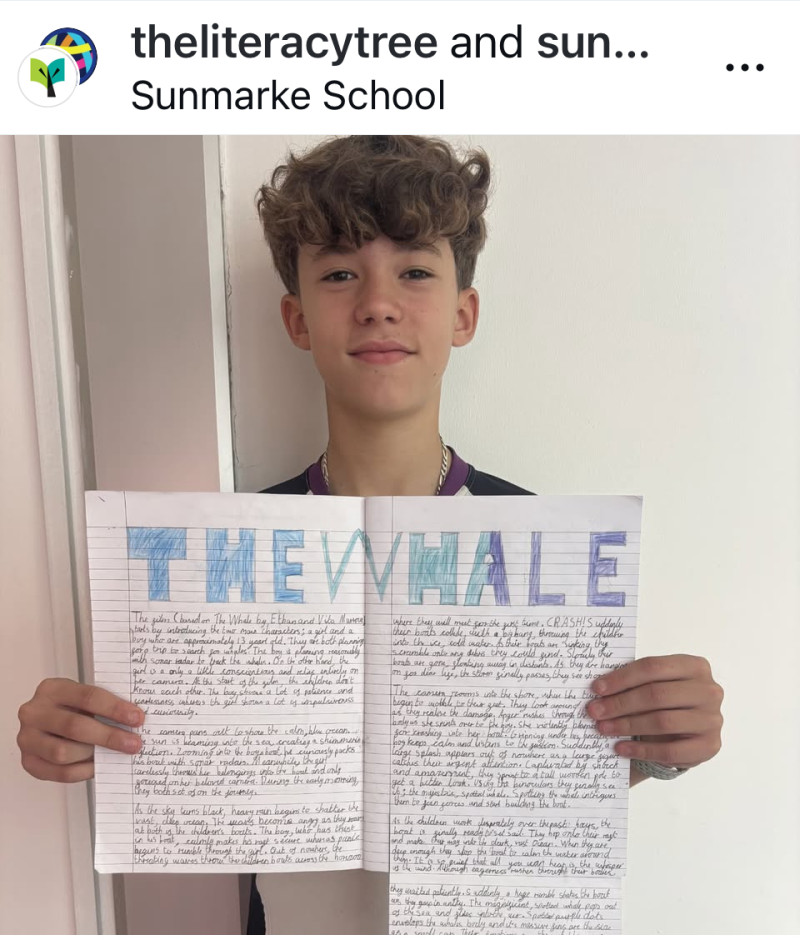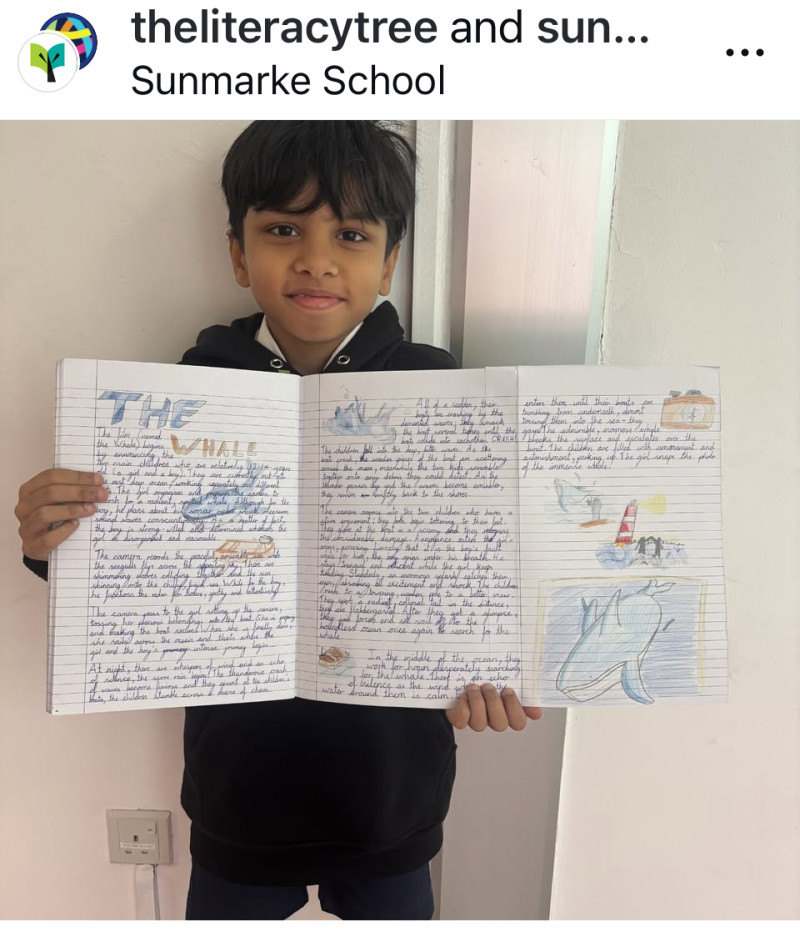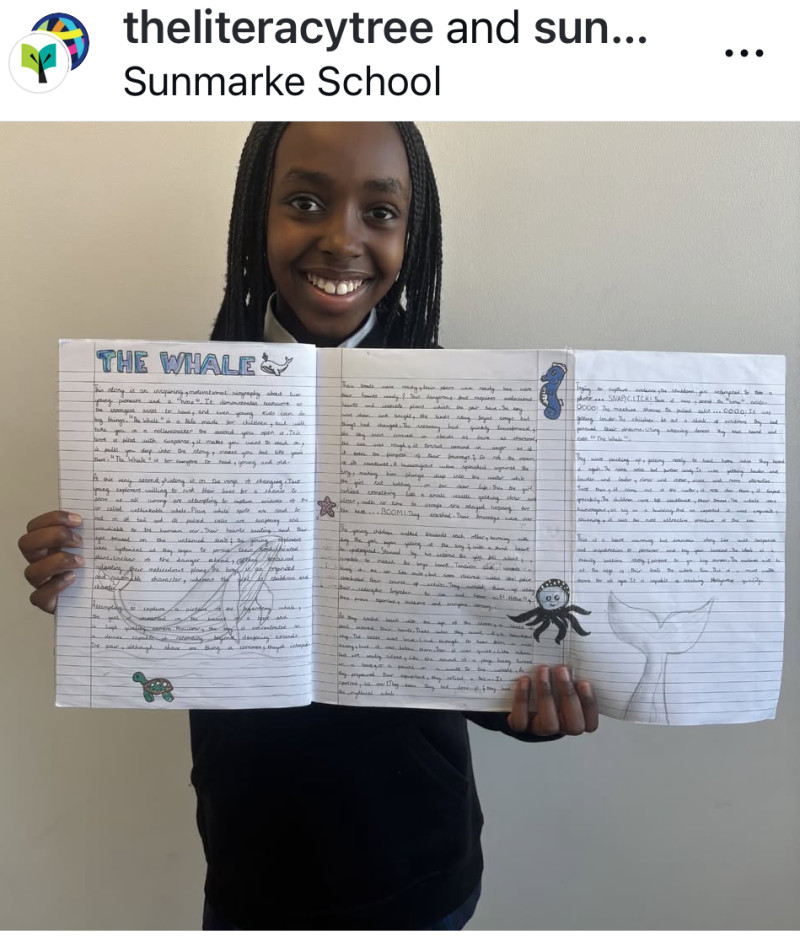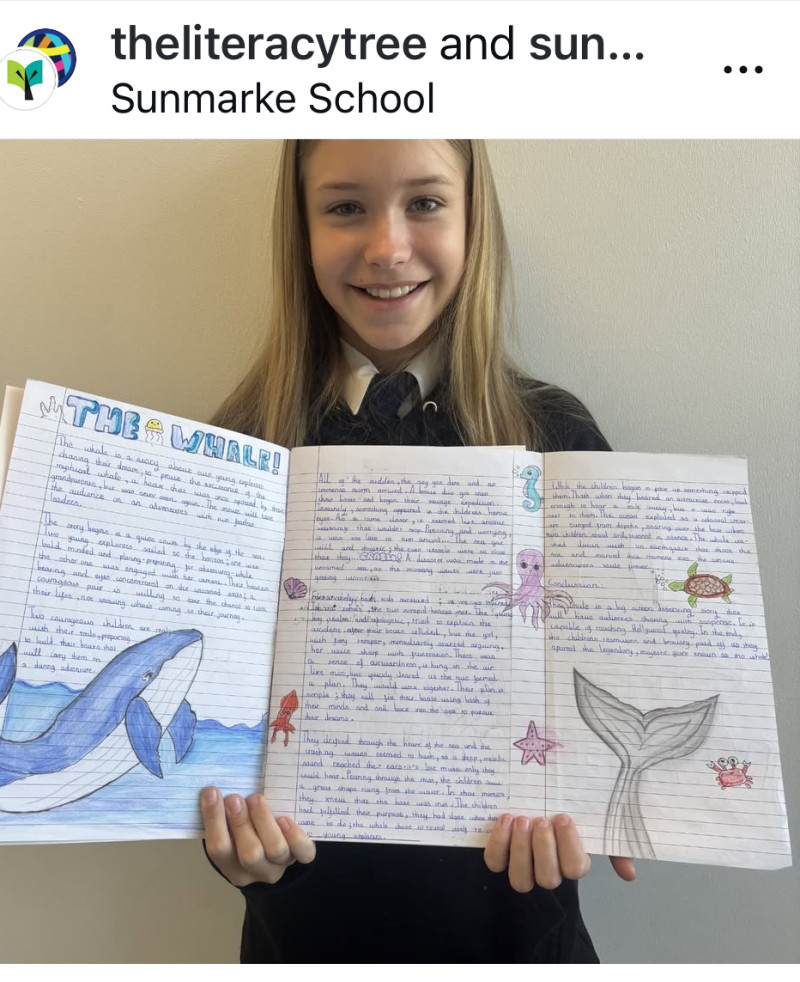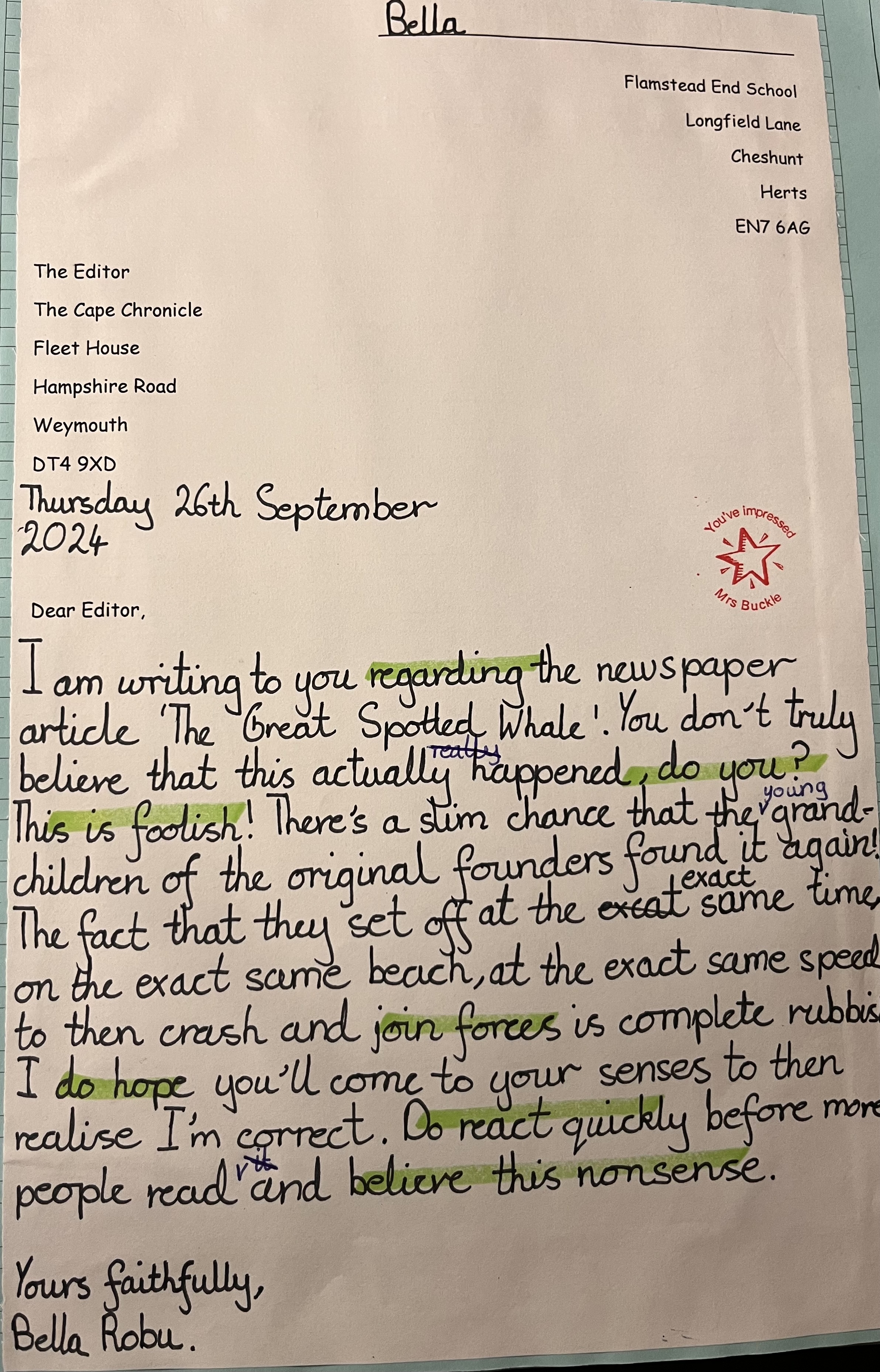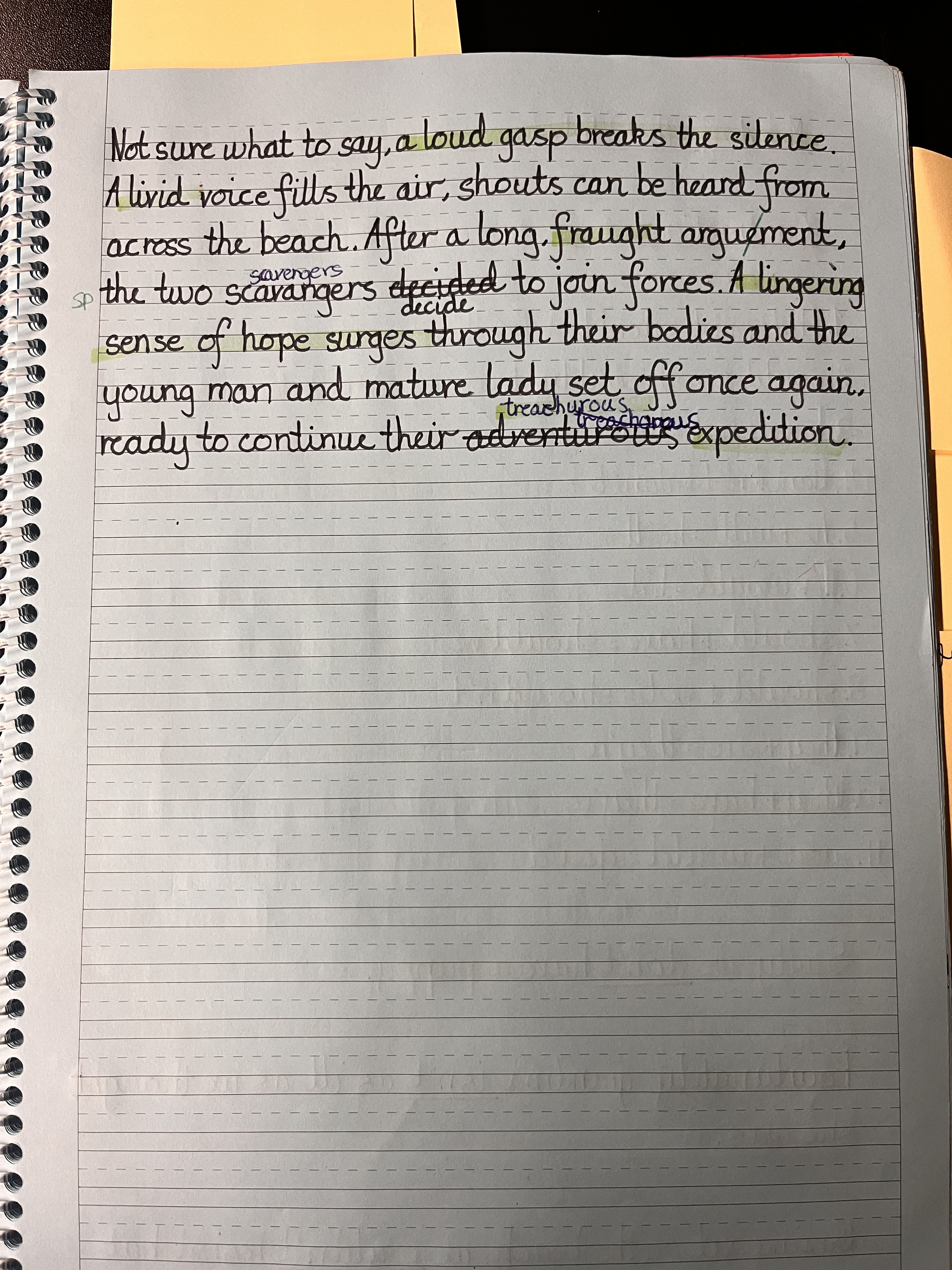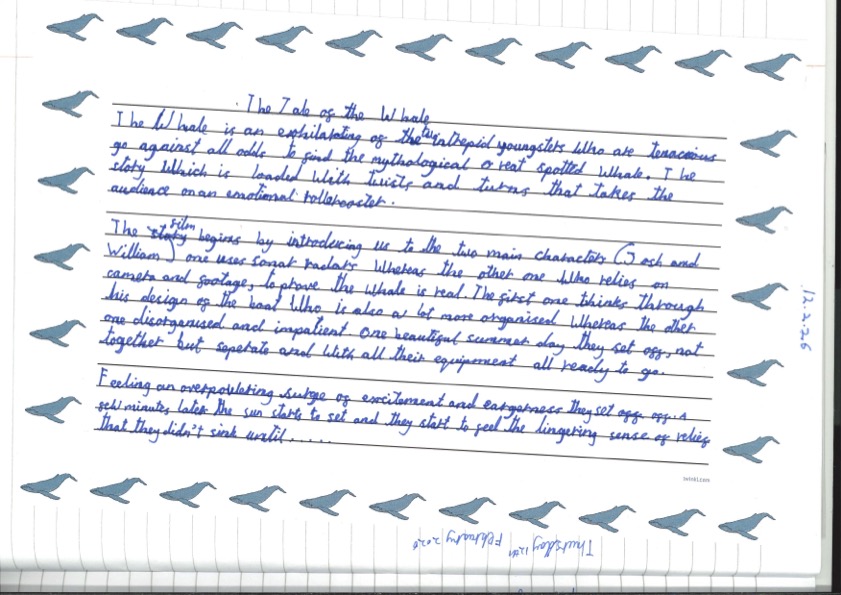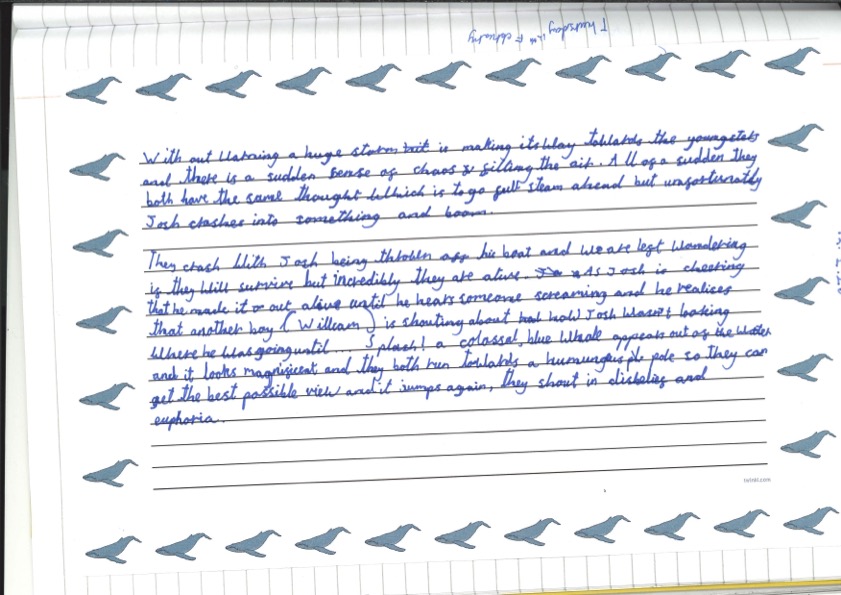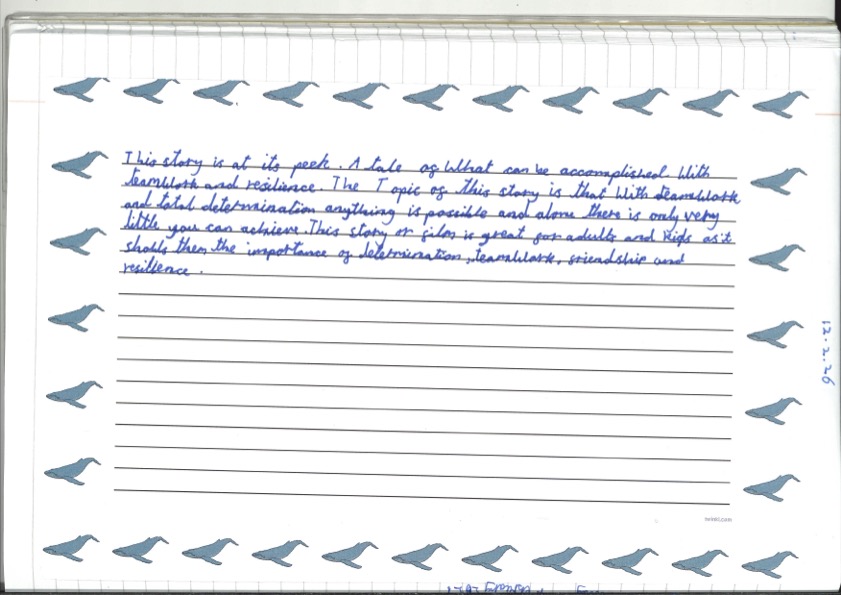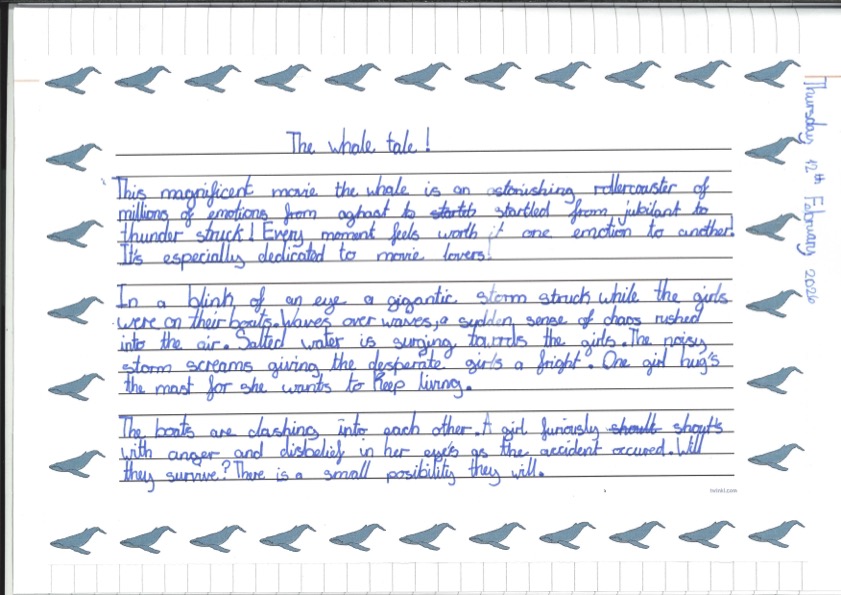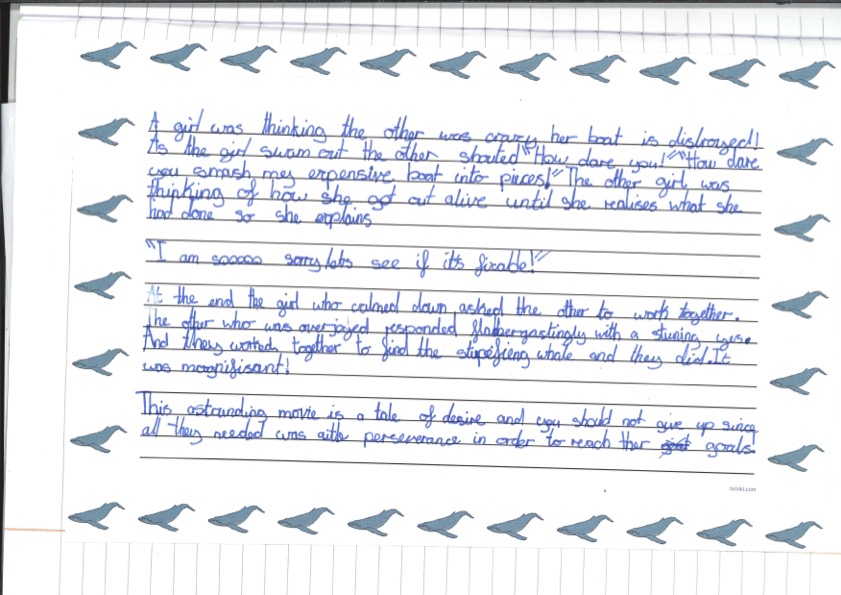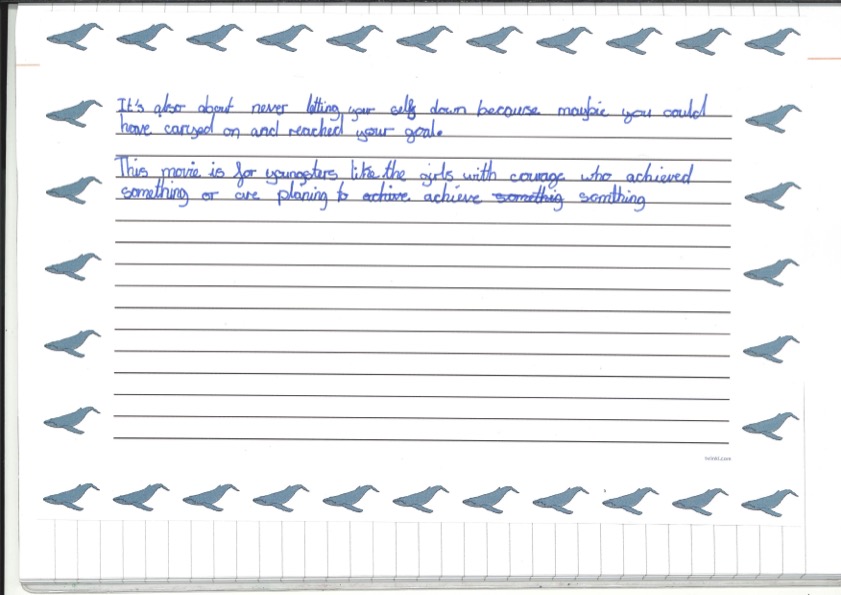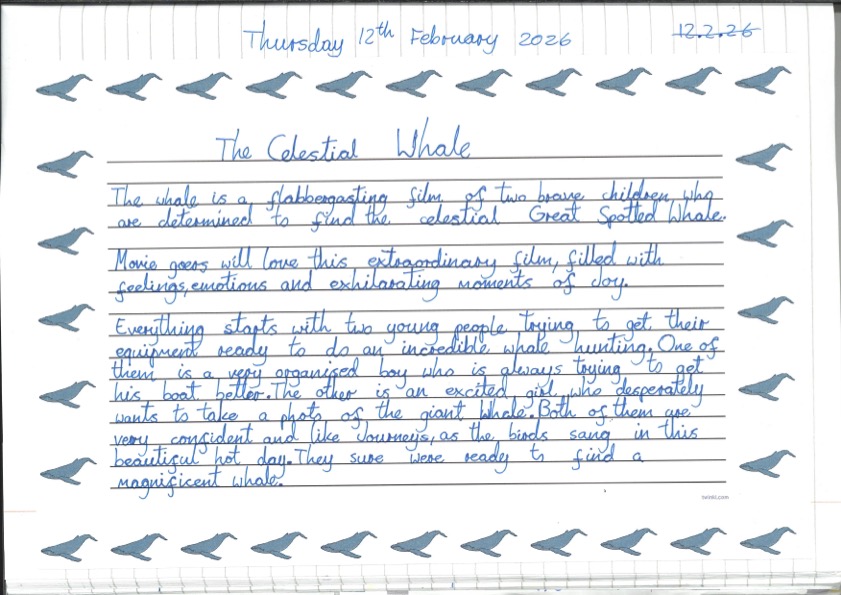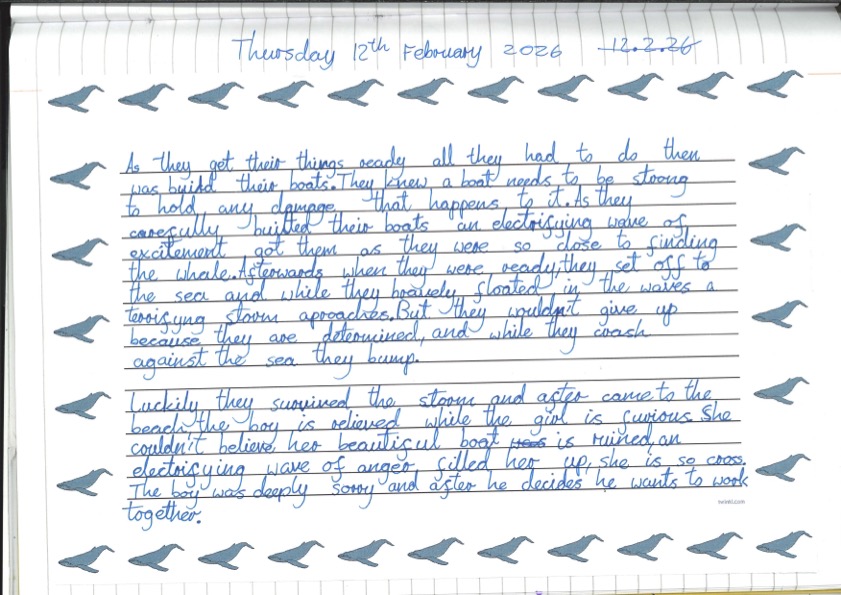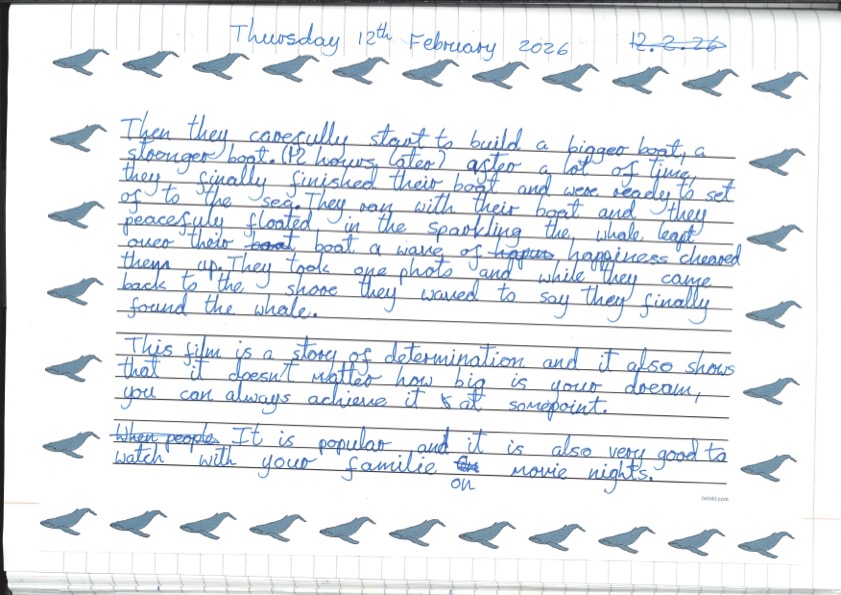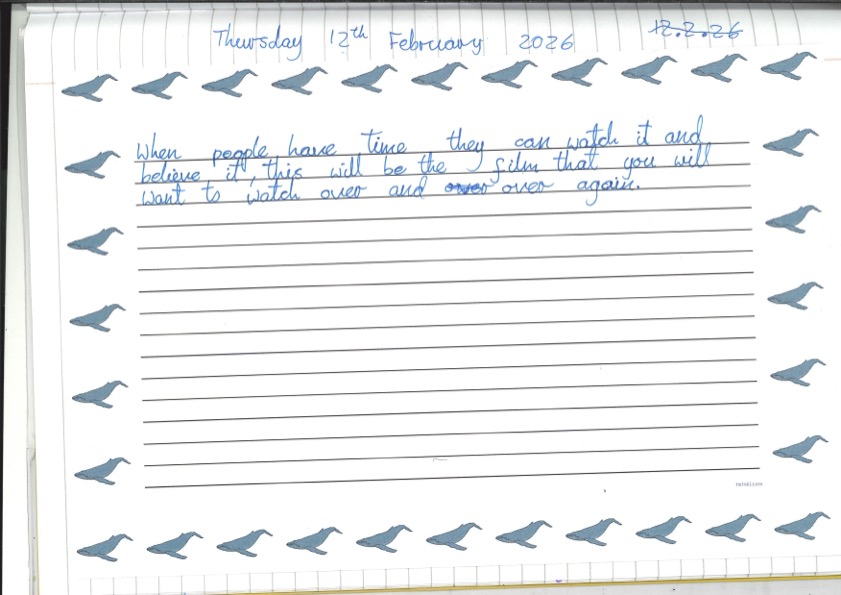A Writing Root for
The Whale
By Ethan and Vita Murrow
£5.00 Incl. VAT
Main Outcome:
Film pitch
Length:
15 sessions , 3 weeks
Work Samples:
View work samplesLinked Resources:
View resourcesAdditional Outcomes:
Reported speech, speech and thought bubbles, description, recount in role, letter to a newspaper editor
Overview and Outcomes:
This is a three-week Writing Root for The Whale, a wordless picture book by Ethan and Vita Murrow about two sightings of the great spotted whale, both by pairs of children, separated by fifty years. Children enter the classroom to find a poster informing them of a possible sighting of the Great Spotted Whale fifty years ago and encouraging the public to prove its existence. Children discuss and explore the concept of a hoax culminating in a discussion about media literacy. A newspaper article about the sighting is shared and children role play an interview between the reporter and the two children before writing reported speech for the newspaper. The book takes us to the present day, where two children decide separately to try and spot the whale. We follow their adventure, capturing their emotions and sensory experiences and, when the two boats collide in a storm, their thoughts and conversation. Children write a descriptive paragraph using textual clues, an emotionally charged piece in role as one of the main characters and a letter to the newspaper editor to suggest whether they believe the story or not. The sequence of learning culminates in children writing a film pitch for The Whale, focusing on vividly capturing the setting, atmosphere and emotions to secure funding to make the movie.
Synopsis of Text:
There is a legend that a Great Spotted Whale lives in the ocean; local fishermen still talk of it, although the first sighting fifty years ago was never corroborated. Now, two young whale watchers each set out to find the whale, one armed with sound recording equipment, the other a camera. Mid-ocean their boats collide, so they pool their resources and set off together to capture incontrovertible proof that the mythical Great Spotted Whale exists. The eventual sighting is a magical moment: the whale is truly phenomenal, and swimming along beside her is a small whale calf. The children return to shore, solid proof in hand. As an added twist to the story, they discover that it was their own grandparents who first sighted the Great Spotted Whale fifty years ago. The Murrow's epic, wordless adventure is brought to life with Ethan's stunning graphite drawings, which convey the drama and haunting beauty of the ocean, and capture the majesty of this awe-inspiring creature.
Text rationale:
The Whale is a wordless picture book which captures the drama of an epic adventure story through haunting graphite illustrations in black and white. Children will be enthralled by the mystery of the Great Spotted Whale and the book will act as a stimulus for lively discussion and debate around the reliability of eyewitness accounts and the feasibility of the characters’ stories. Peppered throughout, the newspaper articles add a layer of detail which children can draw upon as evidence. Relying solely on images to convey the magical tale, children will develop their skills of inference and deduction and links can be made to other enchanting tales of hoaxes and mystical creatures.
Links and themes:
Whales, hoaxes, the ocean, mystery, following your beliefs, hope, perseverance, determination, working together
Date written: December 2023
Resource written by:

Literacy Tree

